- Home
- Joel Rosenberg
The Crimson Sky
The Crimson Sky Read online
The Crimson Sky
Keepers of the Hidden Ways
Book III
Joel Rosenberg
Content
Big Bang, Big Crunch, Big Headache?
Prologue The Faerie Ring
Part One Hardwood, North Dakota And Minneapolis, Minnesota
Chapter One Something In The Air
Chapter Two The Hidden Way
Chapter Three Valin
Chapter Four Town Meeting
Chapter Five Scent Of A Son
Chapter Six Night Moves
Chapter Seven Day Time
Chapter Eight Chest Pains
Part Two Minneapolis, Minnesota And Tir Na Nog
Chapter Nine Vandescard
Chapter Ten Lake Calhoun
Chapter Eleven Marks
Chapter Twelve Bóinn’s Hill
Chapter Thirteen Morning After
Chapter Fourteen Branden Del Branden
Chapter Fifteen Sons Of Fenris
Chapter Sixteen The Wrist
Chapter Seventeen The Scion
Chapter Eighteen A Cry In The Night
Chapter Nineteen The Heir
Chapter Twenty Valin
Chapter Twenty-One Reckoning
Chapter Twenty-Two Harbard’s Crossing
Chapter Twenty-Three Arnie And Freya
Chapter Twenty-Four A Farewell
Chapter Twenty-Five The Flesh Of Ymir
Chapter Twenty-Six Harbard’s Ring
Chapter Twenty-Seven Acton’s Legacy
Chapter Twenty-Eight The Son
Chapter Twenty-Nine The Sons
Chapter Thirty The Crimson Sky
Chapter Thirty-One Sons
L ‘Envoi The Norn
Big Bang,
Big Crunch, Big Headache?
by Elise Matthesen Special to The Gleaner
09-MAR-98 Hardwood ND USA
The universe will end. Not soon—perhaps it will take another two hundred billion years or more—but the universe will end.
Recent findings from astronomers have left scientists with that uncomfortable conclusion. Five separate teams of scientists from Princeton, Yale, the Lawrence Berkeley National Laboratory, and Harvard have all recently announced studies that show that the universe, which began with the cosmic explosion called the “big bang” approximately fifteen billion years ago. will expand forever, until nothing remains throughout space but widely scattered hydrogen atoms and cold rocks.
Scientists investigating the possibility of a future “big crunch,” where all the matter in the universe combines to form a single extremely dense package and then blasts outward in a rerun of the big bang, discovered that the universe contains only twenty percent of the mass needed. The universe is “open” and will not “close,” they say.
The results of these years-long studies are provoking an uproar among those scientists wedded to the steady state hypothesis, the notion that the universe is “closed.” The skull-splitting question: if the steady state hypothesis is true, at least eighty percent of the matter in the universe is undetected and undetectable. Where is, they ask, the missing eighty percent of the universe’s mass necessary to bring on the next big crunch/big bang cycle?
Dr. Erwin Rice, director of the Astronomy Department at the University of North Dakota in Grand Forks, is unsurprised by the findings—or the furor. At a Macalester College debate in Minneapolis last week on the implications of the study, Rice said, “These steady staters believe in a universe that goes back and forth like a yoyo. No grand design—it’s a video game: push the big bang button and start over.”
Rice calls the steady staters’ theories “wishful thinking and sloppy science—like running another study if you don’t like the results you got the first time.” Rice says the five studies are “jointly and severally conclusive” and says, “It proves what we already know.”
Assistant Professor Kim Coleman of the University of Minnesota‘s Astronomy Department, speaking at the same gathering, said the study doesn’t answer as many questions as it raises. “Where did the matter go? Why can’t our instruments detect it? If it’s gone, when and how did it get converted to energy—and why haven’t we picked up the traces of such a process? If the steady state theory is correct, how does the necessary mass reassemble itself?” asks Coleman. “If it isn’t true, then what happened before the big bang?”
“That’s a meaningless question, scientifically,” Rice interjects. “But if the evidence states the big bang was a singular event that will not be repeated, how many alternative studies can we con the taxpayer into funding?”
Coleman admits that some of the hypotheses suggested to shore up the steady state model are “pretty far-out”—ranging from new types of interference that block the effects of gravity to pocket universes straight out of sci-fi novels.
“Or maybe the cat knocked it under the couch,” jokes Rice. “We’re talking enormous amounts of lost matter here—at least four times all the measurable matter in the universe!—not some little key chain doodad you can leave lying around someplace and forget!”
The Reverend Georges Friedmann, who holds a Ph.D. in Astronomy from Cal Tech, as well as a Master of Divinity from Pacific Lutheran Theological Seminary, and who teaches two classes in astronomy each semester at Macalester in addition to his duties as associate pastor at Christ Evangelical Lutheran Church in Minneapolis, finds the controversy both fascinating and amusing. “If the universe is open, and proceeds from a beginning, I think the religious implications are obvious,” he says, smiling smugly. “If you find my smile smug, you have gotten my point.”
“Well, maybe you should have your Jehovah check his pockets,” answers Coleman. “The fact is, we won’t know what happened to it until we look further. And, not having certain funding advantages—” Debates may end in rancor, but the question remains: If the steady staters are right, and the universe is an uncreated, self-regulating series of big bangs and big crunches, then where’s the missing mass?
Whoever borrowed that extra matter had better put it back, according to Rice, or the steady staters are going to be “very, very unhappy.” Rice waggles an admonitory finger. “”And very, very embarrassed, when study after study shows the same result: the universe is open.“
Friedmann is more conciliatory. “It’s long been a fundamental cornerstone of science that the existence of an extra-normal Creator is untestable, and as a scientist, I have to say that it still is. But as a man of God, I’m not entirely displeased that the cornerstone seems to be crumbling just a little.”
Professor Coleman declined comment.
Prologue
The Faerie Ring
Winter was coming.
She could smell the frost in the air, mingled with the tang of ozone. The cold, wet wind rattled the few remaining brown leaves that still clung in dead desperation to the branches of the old oak. The lightning flashed, and the thunder boomed not far away upwind, high on the eastern ridge where the road to the Dominions twisted like a silver thread through the gray and the green.
The cold didn’t bother her, even though all she wore was a knee-length shift, belted tightly to accentuate her slim waist and the full breasts and hips that were only sometimes in style, but always popular with men down through the ages.
At this altitude, soon there would be snow, even this far south, but that wouldn’t be more than a mild inconvenience—for her, at least—if she decided to make the climb to forage again.
Lighting flashed and thunder boomed, yet again.
The lightning and thunder didn’t bother her, either; in fact, they amused her.
Boys will be boys, after all.
A human eye wouldn’t have caught it, but the lightning didn’t flow down from the dark
clouds overhead; instead, it splattered outward and up from a single point of impact in the mountains, white-hot sparks fountaining up and out from a blacksmith’s strike against his anvil.
The woman the locals called Frida the Ferryman’s Wife grinned to herself as she stooped to part the soft moss at the base of the old oak tree, and reached her hand through the musty humus into the tight-packed, chalky soil, her fingers probing carefully, gently, tenderly. They emerged filthy, the dirt packed hard into the creases of her knuckles and even under her short nails, but cupping yet another truffle the size and shape of a baby’s fist: brown like old wood, veined in black and white, covered in coarse polygonal warts, each with a tiny depression at its summit.
They were rarer here in the south, but they often had rings of brown mushrooms up in the Dominions. A drifting spore, too small for human eyes to see, would fall to the ground and find just the right combination of dank and dark to grow and send out shoots; and from those shoots would grow brown-capped mushrooms, in a ring perhaps two, three, four paces across.
Overnight, in a meadow, perhaps, or even on the green, green grasses of the Cities, a perfect circle of mushrooms would appear, as if by magic.
Fairy rings, the children called them, and they would shy away. There was something chilling in their sudden appearance, in their unnatural regularity.
Some fairy ring mushrooms were quite tasty, others, often similar in color and shape, were quite deadly. Perhaps an apothecary would be summoned to identify them as wholesome, taking a share as his pay and a bite as his proof. Or perhaps not.
But, as with all things, the center would die. Still, the shoots would live, each to send out its own shoots, to form rings of rings, and then rings of rings of rings until, finally, the circle was too large and subtle to be detected by ephemerals, who could no more detect the shape of an ancient fairy circle than they could watch a high, jagged mountain range slowly crumble, writhe, and wither into shrunken old age, like a snake with a broken back.
It was all a matter of perspective and patience. These were useful attributes even for an ephemeral, and it was difficult to get through even one’s first few centuries without developing both.
She added the truffle to her basket and considered for a moment whether or not to follow the ring. The next truffle should be over… there.
Let it lie, she decided. If she sliced them paper thin, as she preferred, there were more than enough to line the skin of the goose that was, even now, hanging from the meat-hook in the cottage she shared with the Thunderer, and even a few to pop into the drip cup of fat, to sizzle and smoke for a few moments, before she would pop them in her mouth.
Again, thunder rang out. Arnie’s explanation was that he had seen three Vandestish patrols out this way in recent weeks—and, quite certainly, he had: her sharper eyes had spotted seven—and that it was only reasonable to show a little force, to make the sky rumble a trifle and the land shake ever so slightly, if only to remind them who was who, and what was what.
That was the truth, and nothing but the truth, but it was not the whole truth.
She grinned.
It was the way of women in general and a fertility goddess in particular to understand that men, be they ephemerals or gods, really never stopped being boys. She had seen this sort of thing for the first time when the world was young, and more times than she cared to count since, but it still amused her.
A boy with a new toy was always the same, whether it was a toddler with a pair of round stones that he had just discovered made a delightful crack! when slammed together, or a pubescent young boy with his first real orgasm, or a man in his sixties who found that he was one who could wield Mjolnir, Murderer of Miscreants.
Boys: they had to play with their toys.
The wind picked up. Winter was coming.
She picked up her basket and hurried up the road to the cottage.
Winter was coming. Perhaps even the Fimbulwinter? Not yet, she thought. Not yet. Freya shivered, but not from the cold. Please. Not yet.
Part One
Hardwood, North Dakota
And
Minneapolis, Minnesota
Chapter One
Something In The Air
Torrie Thorsen first picked up the scent just east of Lyndale, on Lake Street. He had gotten off the Number Four bus—his car was buried in S-Lot under a bank of snow from the snowfall of two nights before, and he hadn’t had the time to dig it out, not yet—at Lake and Lyn, and thrown his book bag over one shoulder, and his gear bag over the other.
He considered stopping for some takeout at the Greek place at the corner—Maggie liked their gyros, and Torrie liked the taste, if not the name, of their “Cheeseburgerop-oulis”—but it was kind of cold out, and he was dressed for the city, not for the country, and Maggie and her roommate kept their apartment warm, and since she was expecting him there would be a fresh pot of coffee on, and—to be honest, and Torrie Thorsen made it a policy to at least always try to be honest with himself—the sooner he got into her apartment and out of his coat, the sooner he could get Maggie out of her clothes and into her bed and get himself into Maggie, and if that sounded awkward and crude even within the privacy of his own mind—and it did—he wasn’t going to say it that way out loud.
Even if it was true.
Food could wait.
Dirty snow stood piled high, covering the curb, the little red flag on the fire hydrant peeking out. In the summer, it looked like an antenna, as though city fire hydrants were really radios in bad disguise, maybe planted by Boris and Natasha, broadcasting hidden messages to the Pottsylvanians.
But in the winter, it was just a piece of red plastic.
The smell of winter was in the air: diesel fumes from the buses mixed with the scent of cold, and with the mouthwatering smell of sizzling gyrobeast on the rotisserie at the Greek place that just had to be deliberately pumped out at street level…
… and with a distant foul smell that was vaguely familiar, although he couldn’t place it.
He shook his head and sniffed again.
It was gone, replaced with the rich meaty scent of roasting peppers and maybe some lemongrass.
You got a good mix of tantalizing scents in the air in this neighborhood, what with a half dozen cheap little restaurants—most of them quite good—vying in different ethnic dialects for the local palate and wallet.
There was a Vietnamese place down half a block that had a remarkable way with those crisp egg rolls filled with cellophane noodles, crunchy cabbage, and spiced shrimp; a hole-in-the-wall Ethiopian restaurant that served horrid-looking but wonderfully spicy glops of indeterminate mush that you swept up with pieces of warm flatbread; and the fryolators at that Arabic café always had something tasty going.
Maybe it was just a bad day for the shashlik.
He sniffed the air again, and picked up his pace. Nothing this time.
He shrugged. Probably nothing at all.
He frowned to himself. I’m just being silly. It was probably just that he didn’t like having to make this trip. Maggie had moved off campus and to an apartment on Bryant, just off Lake. Torrie didn’t quite understand it, but he was more than sure he didn’t like the way it cut into her time.
The amount of time you had to spend to keep an apartment clean, to go shopping for groceries, and to do all the other stuff that went with off-campus life, well, that time came out of your schoolwork time budget, your social life, or your time in the gym, and neither he nor Maggie was willing to cut down on their practice time, and she wasn’t willing to slack off on any of her courses.
And then there were her evenings on the phone at the Rape Hotline, and her shopping expeditions with that roommate of hers and her circle of friends—
—all of which meant Torrie was seeing even less of Maggie than he had since well before they had taken time off from school—not to mention the months they’d spent traveling together—and he really didn’t like that.
Not that what he liked
necessarily made a difference, but he had sort of assumed that after spending time bouncing around Europe—and Tir Na Nog—together, the two of them would move in together after school was finished, and work out something even less formal in the interim.
And then she had taken an apartment, complete with roommate, without so much as hinting that that was what she had planned. The first inkling he had had about it was when he had checked in at her former dorm and was given her forwarding address.
Some hint.
Not so much as a word in advance—that was very, very Maggie.
He was more disappointed than angry. This was Torrie’s senior year, after all, and he finally had a single room—not that Ian had ever had a problem sleeping on the couch in the dorm living room—and while she grudgingly kept a couple of changes of clothes in his bottom drawer for those rare occasions when she stayed all night, that was about the limit to which she was willing to move in.
Women, he thought. Can’t live with them—not when they won’t let you.
Fact is, he liked just being around Maggie, and with Ian on a leave of absence from school that was probably going to be permanent, she was the only person in town that he could really talk to without watching himself.
And there was more to it.
They’d been through some things together, her and Ian and him—and Mom and Dad and Uncle Hosea, for that matter. You sweat and bleed and shiver in fear enough with somebody, and they’re part of you, and you’re part of them, in a way that transcends any ordinary understanding.
Call it magic; Torrie Thorsen had no objection to magic.
He grinned. And that felt kind of nice, even if he had to share that special closeness with Maggie, with Ian, and his family. At least, he didn’t have to share every—
There was that smell again. Bitter and acrid, but distant. Like …
… like he couldn’t remember what.
You learn a lot of things on a fencing strip, and one of the first you learn is balance, although Torrie had learned that from his father a long time before he had ever set foot on a fencing strip. The three pillars of fencing were balance, timing, and space, and if you didn’t have all of those down solid, there was no point in even thinking about strategy, because somebody with whatever attribute you were missing could score on you just about nine times out of nine.

 The Road Home
The Road Home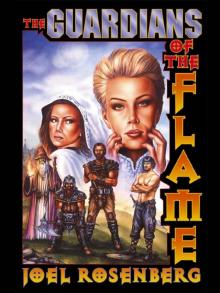 The Sword and the Chain
The Sword and the Chain Not Quite Scaramouche
Not Quite Scaramouche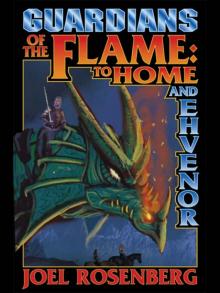 Guardians of The Flame: To Home And Ehvenor (The Guardians of the Flame #06-07)
Guardians of The Flame: To Home And Ehvenor (The Guardians of the Flame #06-07)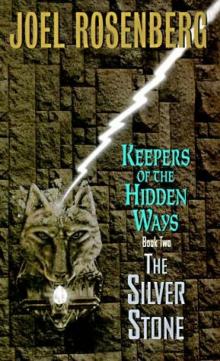 The Silver Stone
The Silver Stone Hero
Hero Not For Glory
Not For Glory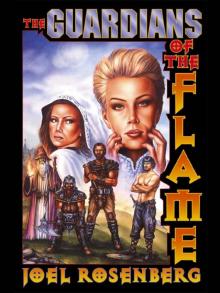 The Sleeping Dragon
The Sleeping Dragon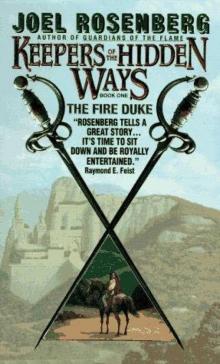 The Fire Duke
The Fire Duke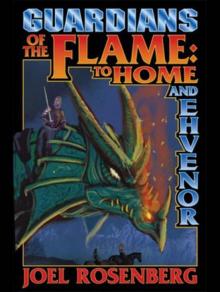 Guardians of The Flame: To Home And Ehvenor (Guardians of the Flame #06-07)
Guardians of The Flame: To Home And Ehvenor (Guardians of the Flame #06-07)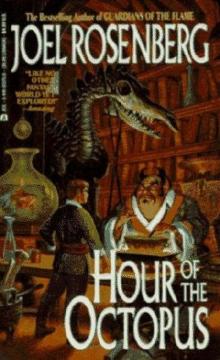 Hour of the Octopus
Hour of the Octopus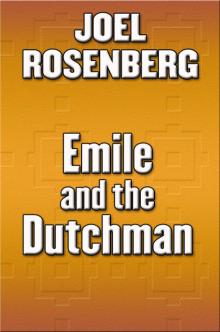 Emile and the Dutchman
Emile and the Dutchman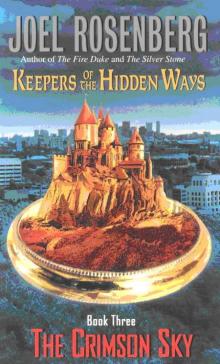 The Crimson Sky
The Crimson Sky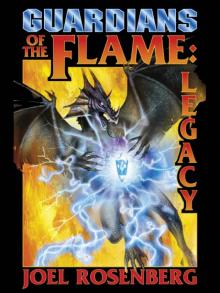 Guardians of the Flame - Legacy
Guardians of the Flame - Legacy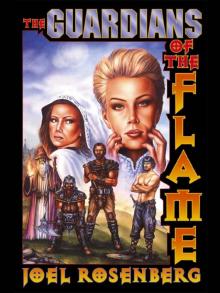 The Silver Crown
The Silver Crown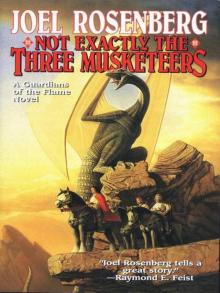 Not Exactly The Three Musketeers
Not Exactly The Three Musketeers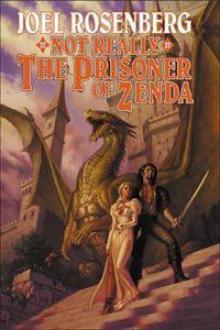 Not Really the Prisoner of Zenda
Not Really the Prisoner of Zenda